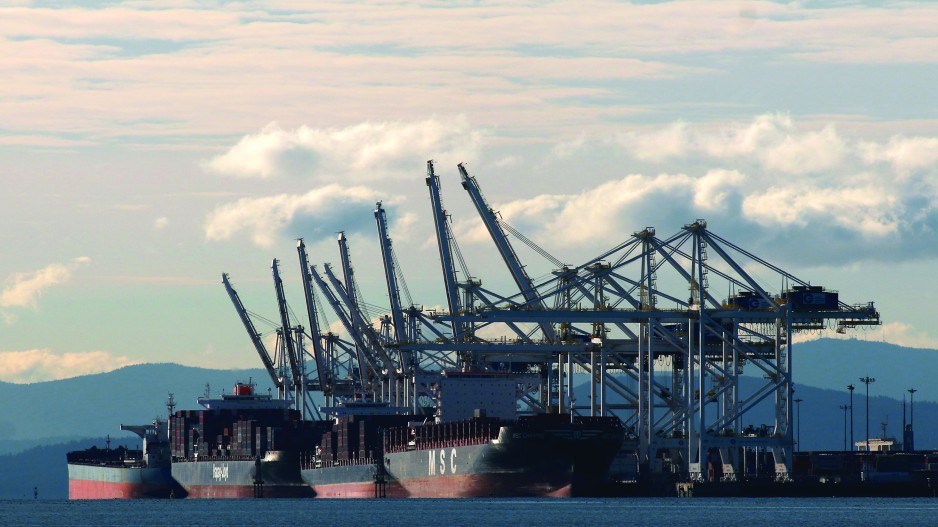The panel appointed by Ottawa to carry out the environmental impact review on the proposed Terminal 2 container port expansion project at Roberts Bank has published its findings - and identified significant “adverse residual and cumulative effects” that the project would cause.
However, the panel also stated its view is that the “construction and operation of the proposed project do not pose major technical challenges” and “is consistent with Canada’s role as a trading nation.” As such, the panel said it concludes the Vancouver Fraser Port Authority was correct in assessing the project as the most appropriate way to increasing container port capacity on the west coast (in terms of "alternative means" to carry out the project).
“The Project would also support competitiveness for Canadian markets linked to a marine shipping supply chain facing important changes,” the panel report’s summary said. “… The City of Delta, Metro Vancouver, British Columbia and Canada would benefit from the employment, business opportunities and economic development resulting from the Project.”
The report, which has also been filed to the office of federal environment and climate change minister Jonathan Wilkinson, outlines 71 recommendations for environmental, social and industrial mitigation measures to minimize the impact found by the panel - which concluded its list after months of public hearings throughout B.C. last year.
Among the key recommendations were items to measure and reduce underwater noise from marine shipping to mitigate impact on Dungeness crab and Chinook salmon habitat - as well as liaison recommendations with Tsawwassen First Nation and the Musqueam Indian Band to consult and manage issues that may arise from the project.
The recommendations were made because adverse effect of Terminal 2 - which involves what the panel calls a loss of 177 hectares of habitat loss due to the landfill for the project and other factors - cannot be sufficiently compensated by the Port Authority’s proposed 29-hectare offsetting proposal.
The species likely to be hurt by the project, as listed by the panel, include Southern Resident Killer Whales, Chinook salmon, Dungeness crabs and Barn owls. Impact on one of the species heavily championed by local environmentalists during the panel hearing - the migrating Western sandpiper - was found to be inconclusive.
The panel added that “although unlikely, a lethal vessel strike on a single individual [Southern Resident Killer Whale, or SRKW] could have significant adverse population consequences.”
The findings also concluded that Terminal 2’s adverse effects will extend beyond wildlife. According to the report, the impact will range from human health in the area (from the predicted 1-hour exposure per-day to nitrogen dioxide from the terminal) and the loss of agricultural land near the port to negative effects on Tsawwassen/Tsleil-Waututh nations’ access to cultural sites and on commercial crab fishing in the area.
“The Panel concludes that additional measures would be required to adequately address effects from accidents and malfunctions that may occur in connection with land-based events,” the report said. “If a worst-case oil spill were to occur in the marine shipping area, it could result in potentially significant adverse residual effects for vulnerable species such as SRKW and marine birds, marine commercial and recreational activities, current use, cultural heritage and health of Indigenous groups.”
Although declining to comment on the panel’s findings until officials have had time to review the report, Vancouver Fraser Port Authority released a statement reiterating that it does not believe Terminal 2 will have “any adverse effects to the environment that cannot be mitigated.”
“We anticipate that Canada’s west coast will run out of container terminal capacity in just a few short years, and we are eagerly awaiting the next steps in the environmental assessment, which includes a decision from the Government of Canada on whether the project can proceed,” the statement said.




